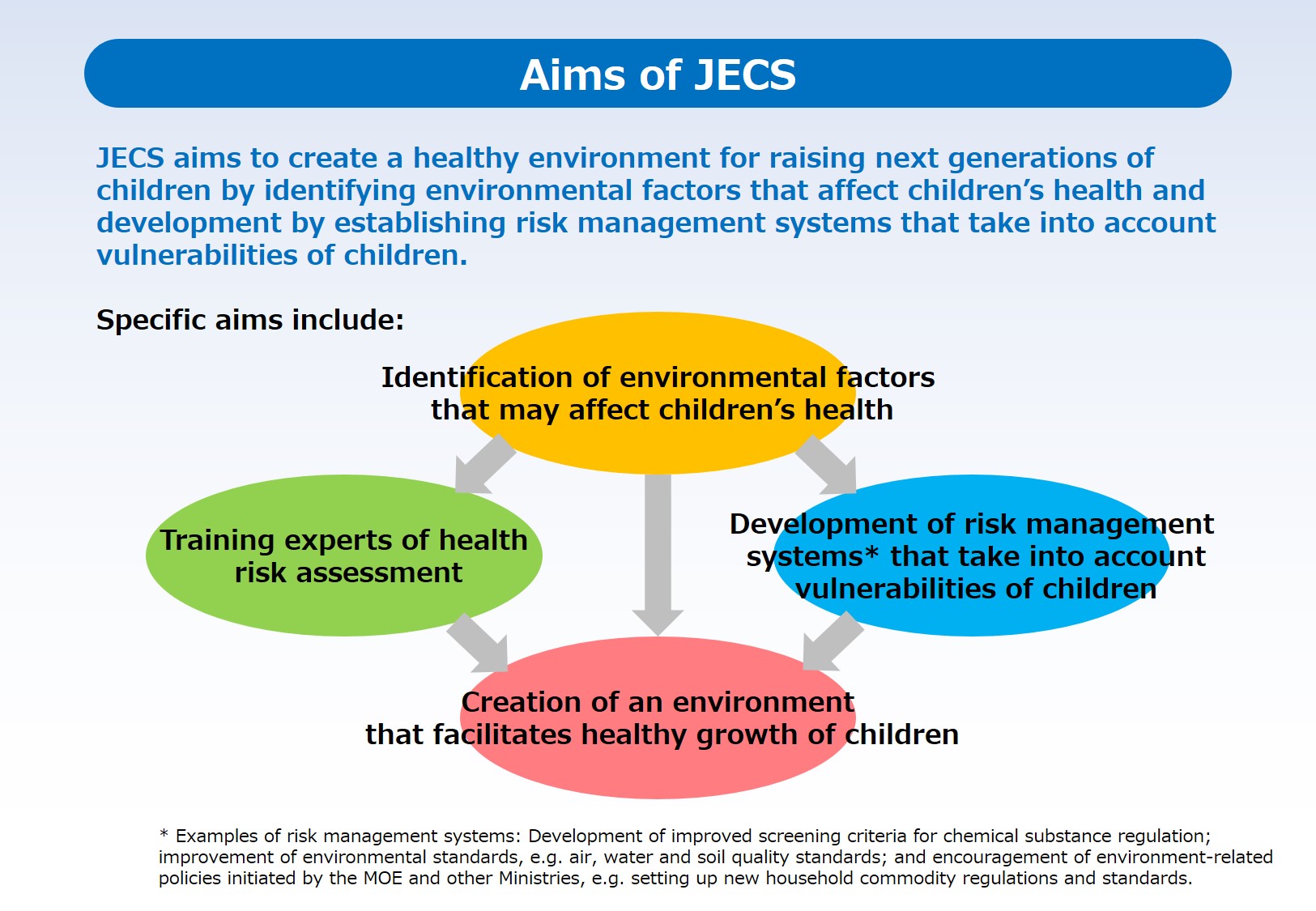Background
Our society and the environment in which we live have changed dramatically. Accordingly, people are concerned about the increase in possibility that such changes including environmental pollutions may pose negative impact on human health.
Specifically, influences of environmental hazards, e.g. chemical pollutants, on the health and development of children are becoming of particular concern both in Japan and overseas.
Reference:Read more Information
In recent years, an increasing number of children are suffering from asthma, eczema, and other diseases that are thought to be caused by environmental hazards in combination with various other factors such as lifestyle (exercise, diet, etc.) and genetic predisposition.
Because children are particularly vulnerable to environmental hazards, it is important to clarify how environmental factors affect children's health and development. For this reason, the Ministry of the Environment (MOE) designed an epidemiological study that aims to identify the environmental factors, such as exposure to chemicals and the ambient environment which may influence health and development of children from the foetal period to early adolescence. This study is called the Japan Environment and Children's Study or JECS.
What is an epidemiological study?
To investigate the impact of environmental hazards on our health and its mechanism, animal experiments and basic research have been conducted conventionally. However, due to substantial morphological and physiological differences between humans and other animals, it is difficult to understand the actual impact of the environmental hazards on human by purely extrapolating the results of animal experiments.
Therefore, it is important to study groups of people directly and investigate whether humans are affected by such environmental risks. This type of study is called as an epidemiological study.
Goal of JECS
The goal of JECS is to identify and elucidate environmental factors that affect children's health and development.
Taking the study results into account, Japanese government will develop effective strategies to manage such factors, including regulation of the use of substances that adversely affect health and development of children. The final goal is to create an environment that facilitates the healthy growth of children and enables parents to raise their children without unnecessary anxiety.

Once JECS reveal environmental factors that affect health and development of children, the results will be shared with risk management sections to develop more appropriate risk management systems, including development of improved screening criteria for chemical substance regulation; improvement of environmental standards, e.g. air, water and soil quality standards; and encouragement of environment-related policies initiated by the MOE and other Ministries, e.g. setting up new household commodity regulations and standards.
The study project will also cultivate new human resources, particularly young researchers in the field of environmental health.
JECS is drawing worldwide attention
JECS has won high international recognition as a long-term, large-scale epidemiological survey on children's environmental health.
JECS organizers have also co-operated with the studies on children and the environment that are conducted in other countries such as Denmark and Norway.
